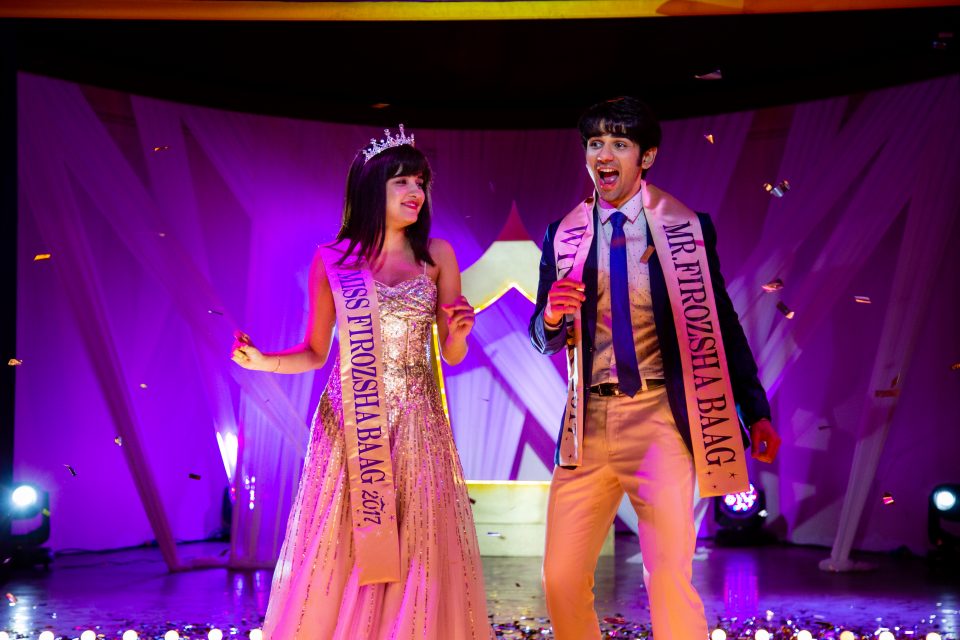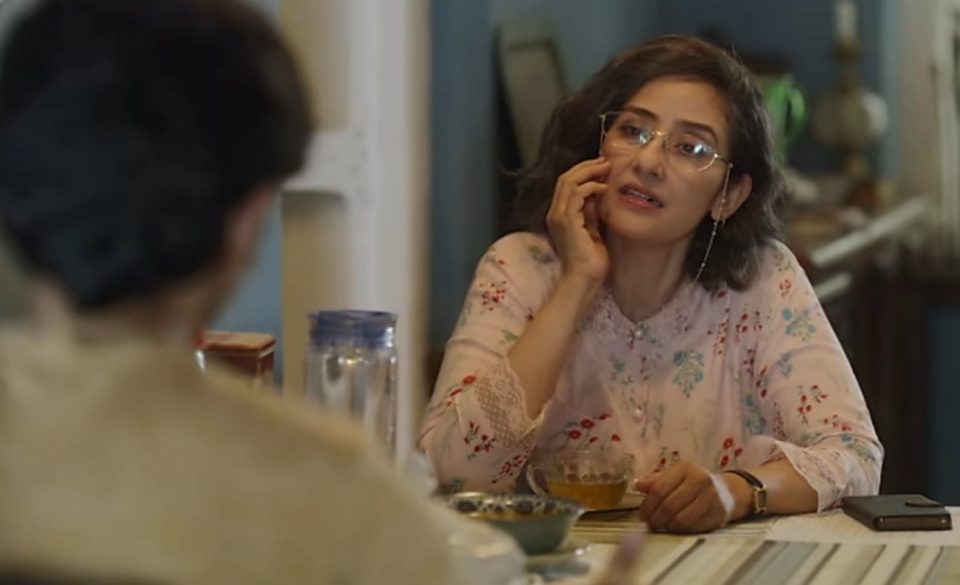‘Maska’ Review: Feel-Good Movie About Choosing Between Legacy and Dream
This breezy drama suffers from uneven writing while serving up a lot of nostalgia and heart
★ ★ ★
If you’ve ever visited or lived in Mumbai, chances are you’ve found yourself seated on an old, imported wooden chair — sometimes intact, other times held together by tape and glue — with 100 rupees in your dwindling pocket while dipping an offering of bun maska in a steaming glass of Irani chai. The experience is as old as the memory itself, with Irani cafes peddling nostalgia for generations, even as the world outside and the people within its walls continue to change.
Such is one Irani cafe run by Diana (Manisha Koirala) and her 19-year-old son Rumi (Prit Kamani) in the Netflix movie Maska. Three generations of the family have baked buns and churned butter in its kitchen and Diana is gearing towards a handover to the next, harboring a dream of restoring Rustom Cafe (Since 1920, a humble board outside reminds us) to its former glory. But aspiring actor Rumi has other plans.

Manisha Koirala as Diana and Prit Kamani as Rumi in ‘Maska.’ Photo: Netflix
Armed with a degree in acting and a fevered determination to forge his own identity, Rumi is itching to be rid of his late father’s legacy. “Main aapka jeeta jaagta museum hoon (I am a living museum of you,)” he says to the friendly ghost of Rustom (Javed Jaffrey) who once proclaimed his son would “become a world-famous maska walo.” To prove his dedication, Rumi even moves to Andheri to live on rent with fellow actor and girlfriend Mallika Chopra (Nikita Dutta) — which you know for a Colaba boy is indicative of some major commitment to the craft — while his mother, like every disapproving parent, declares, “Agar tereko film line mein lukkha banne ka hai (If you want to be a loafer in the film line), I will not give you a single penny.” Inciting both anxiety and intrigue, Rumi puts everything on the line even as old friend and blogger Persis Mistry (Shirley Setia) sets out to document the city’s few remaining Irani cafes.

Prit Kamani as Rumi and Nikita Dutta as Mallika in ‘Maska.’ Photo: Netflix
What writer-director Neeraj Udhwani does particularly well in Maska is pace the film’s drama. Set to a neutral tow, the movie indulges in all the stereotypical idiosyncrasies — think hand-me-down recipes, a Bihari Romeo & Juliet remake, a neighborhood pageant and more — that are part and parcel of a story hinging on a mother, lover and friend’s approval but does so with nuanced earnestness and humorous ease. Udhwani also nails the highs and lows of Rumi’s journey, painting a picture of a boy stuck between dream and legacy, that in its many splatters and splodges never fails to evoke laughter and even empathy. Pulled in different directions by the relationships that mean most to him, Rumi eventfully discovers over the course of the two-hour film that some connections can be passed on from generation to generation and when particularly lucky, even shared.

Shirley Setia as Persis and Prit Kamani as Rumi in ‘Maska.’ Photo: Netflix
An ikigai reference or two might make you cringe but Ishita Moitra’s dialogue packs a punch, particularly entertaining and enlightening whenever Diana and Rustom occupy the screen and Udhwani’s writing while simplistic is laced with a sincerity that makes even Rumi practicing an awards speech in front of a mirror the farthest scene from cheesy. Rumi’s drive and naivete seldom come across as contrived and Kamani wears the character’s heart on his sleeve in this portrayal.

Manisha Koirala as Diana in ‘Maska.’
All is not breezy with Maska and the story suffers in how it poses its female characters as plot devices. Diana is the obstruction to Rumi’s dream, Chopra is the partner in ‘crime’ and Mistry is the voice that makes Rumi question his path. This really nags as the actors leave a mark in all their scenes. Diana grows on you — even the at first unnerving accent — and Koirala brings an endearing rage and passion to a character who doesn’t want to lose what she loves. Dutta is as much of an acting firebrand as she was in Gold (2018), infusing performer on the rise Chopra with a quiet confidence and vocal resilience and Setia brings an innocent intelligence to her portrayal of a woman in inquiry of history. Their characterization feels especially stunted as their agency, ambition and accounts while presented are never fully realized, and these arcs frustratingly play second fiddle to Rumi’s aspiration in Maska.

Shirley Setia as Persis in ‘Maska.’
In Maska, Persis says, “Mumbai is a story,” and the film pays homage to the few Irani establishments still raising their shutters every morning — Jimmy Boy, B. Merwan, Kyani & Co., Britannia & Co., Koolar & Co. (if you haven’t been, you know what to do post lockdown) — through nostalgic cityscape glimpses and a montage of what these cafes mean to visitors (these stories — of the steward from Unnao, the couple who met in the cafe, the railway employee who escapes the noisy tracks for the Irani eatery’s quiet — are the stories within the story and I wonder if they could be an anthology of their own. Hello, Modern Love: Irani Cafe edition!) While the intent seems earnest, Maska only toes the drawn line, glossing over the history of the Irani community in India as well as the intergenerational nuances that inform their cultural footprint, reducing Diana and Rumi’s socio-economic motivations and constraints to merely legacy and it feels like a lost opportunity in a storyline budding with potential for complexity.

Atiyah Chaudhury and Dilipraj as Mr. and Mrs. Shaikh — a couple who meet in the cafe — in ‘Maska.’
In the end, Maska still has a lot of heart. Let it remind you of the little things that spark joy. Curl up with a cup of tea, lay out some toast, kick back and watch the hours go by as this feel-good entertainer takes on love, ambition and even grief in its simplistic albeit earnest stride.




